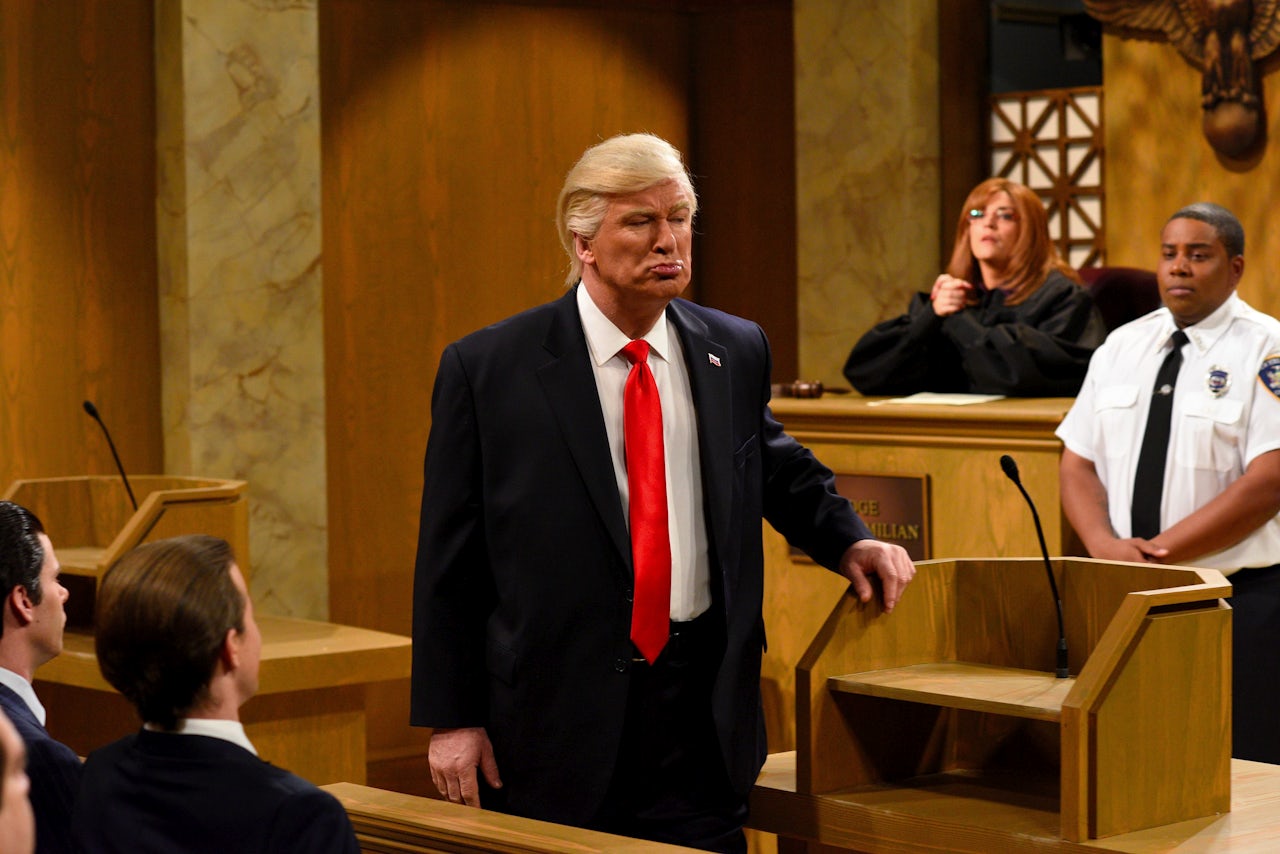Over the weekend, Saturday Night Live attempted to tackle the responses to a now-infamous article published by the website babe earlier this month, in which a 22-year-old woman described how a date with Aziz Ansari turned into “by far the worst experience with a man I’ve ever had.” The sketch, called “Dinner Discussion,” starts with a woman asking her five dinner companions if they’ve read an unnamed New York Times op-ed about Ansari. (The Times has run a few opinion pieces on Ansari, but it’s likely the fictional friends were discussing opinion editor Bari Weiss’ response to the babe piece, in which she calls it the “worst thing that has happened to the #MeToo movement.”) The question turns an otherwise lively dinner into an awkward roundtable discussion on the #MeToo movement, in which the six friends attempt to articulate their varying opinions on the matter, pausing every few seconds — and interrupting each other with over-enunciated “Caaaarefuuuuuul”s and “Waaaatch iiiit”s — to make sure no one else at the table is offended.
“While I applaud… the movement…” said Kenan Thomson’s character, “I wonder if… Maybe… We’re setting it back?” Beck Bennet’s Character said that if Grace, the anonymous woman who spoke out about her night with Ansari, was really so uncomfortable, “She could’ve just left!” The men at the table play the part of reluctant allies; the women, meanwhile, are more sympathetic to Grace and the larger #MeToo movement but are still hesitant to voice their opinions. “I feel that powerful men almost always abuse… Nope!” says Aidy Bryant’s character. “If I were with a woman and she seemed at all uneasy, I would just slow my… rolls! Rolls are good!” said Kate McKinnon’s character, attempting to deflect a completely valid point by grabbing a dinner roll.
One character hides in his sweater; another pulls a curtain over her face. No one feels comfortable expressing a complete thought, but they can’t put an end to the discussion after its begun. “We are in a post-babe dot net universe now and we have to finish what we started,” McKinnon says. The discussion ends after Thompson’s character says it’s important to note how the Ansari allegation “intersects with the issue of race,” a line that causes everyone else at the table to literally scream like little babies.
The most amazing thing about the four-minute-long sketch was how it managed to say absolutely nothing at all. The point, if there even was one, was that it’s so hard to talk about Ansari in a “post-babe dot net universe” — not because sexual assault, consent, and coercion are sensitive topics worthy of nuanced discussion, but because people are just so easily offended nowadays. But somehow, the reception to the sketch was largely positive. Business Insider called it “darkly funny”. The Washington Post said it “speaks to how severely Ansari’s case has disrupted the public consensus.” Mashable had the most generous take of all: “SNL wants to remind us [that] this stuff is deeply embedded, and nothing is going to change until we’re able to tackle the hard conversations as honestly and openly as we do the easy ones.”
The sketch is more of a mass exculpation than a PSA: You tried to have the tough conversation, but it’s just so hard! A for effort! It was another way of reminding SNL’s viewers, whoever they may be, that they are smart and plugged into the national conversation and can pick up on references. If SNL was trying to remind its audience of the importance of having “hard conversations,” as Mashable’s Adam Rosenberg suggested, then they missed the mark. It’s also worth noting that the show’s idea of #resistance is having Alec Baldwin, who recently defended Woody Allen by saying Dylan Farrow is trying to “shame” people into believing her, impersonate Donald Trump. It’s meaningless and cowardly, but worst of all, it’s not even that funny.
And here’s the thing: It’s actually not that hard to talk about Ansari. It is easy to acknowledge that men are conditioned, knowingly or not, to treat sex with women as a chase, a pursuit, a hunt. It’s easy to acknowledge that many men are taught that a no is just a yes in disguise, or that women will sometimes consent to sex they don’t want to have because they’re afraid of what could happen if they say no. Sometimes these things are hard to talk about because they dredge up painful memories — sometimes after talking to a group of friends, a woman may realize that an encounter she wrote off as bad sex could more accurately be described as rape or assault. But women talk about these things all the time, even running the risk that they may say the wrong thing, because there is no other choice but to talk about it. If everybody else is forced to share these growing pains in the service of becoming a better person, that’s for the better. If SNL feels particularly awkward here, it’s probably because many of its cast members have run in the same NYC comedy circles as Ansari, but proximity is no reason to shut up. Then again, if the long-time rumors about beloved cast member Fred Armisen are ever re-evaluated in the present moment, I imagine they won’t do a sketch at all.

